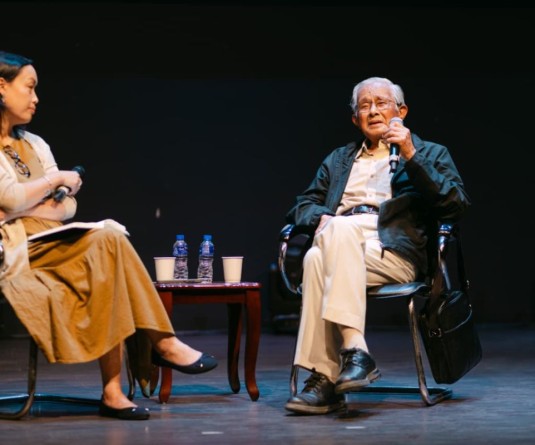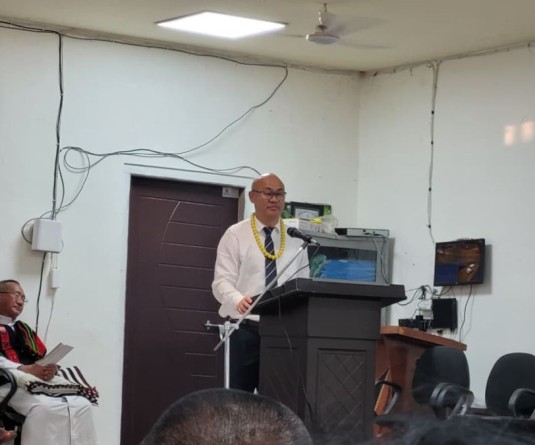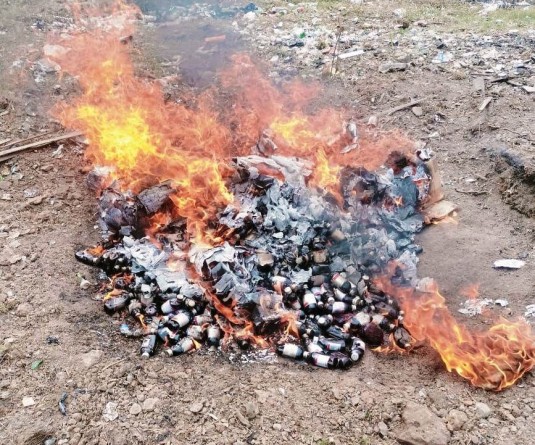
DIMAPUR, AUGUST 6 (MExN): Students of St Joseph University Dimapur have decided to withhold payment of examination fees and boycott online examinations scheduled to be conducted for final-semester students.
This comes after the lapse of the August 5 deadline set by the students’ council of the university demanding action on various issues of concern faced by students and staff with reference to the conduct of online examinations, collection of fees and payment of salaries to teaching and non-teaching staff.
A press release from Brito S Awomi, President, Students’ Council, St Joseph University said the university has insisted on conducting online examinations for final-semester students despite repeated request by students. It informed that most students are from remote districts and due to poor internet connectivity would find it difficult to engage in online exams.
It pointed out that despite the UGC directive on conducting exams for final year students, the UGC noted that, “keeping in view the basic infrastructure available at institutions and accessibility of internet to the students, especially in remote areas, it is not feasible to uniformly adopt the online mode of examination at this juncture”.
The students’ council also stated that the as per circular given by the Controller of Examinations, SJU, students writing online exams should be monitored using Google Meet. If students disconnect from the meeting for more than 30 seconds, it will “result in invalidation of the current examination”. It will be impossible for students from remote areas to be constantly connected to a video meeting and will require students to have two smartphones or laptops, the council stated. Students are also prohibited to refresh the page or open other tabs in their browser. This is impossible as internet connection will surely be disrupted while writing the exam, it added.
It further pointed to the directive that students are to be monitored by “observing his or her facial moments” and may be “ejected from the examination”. “This system only puts a lot of pressure on students and invigilators, and may lead to wrong dismissals,” it added.
While students have been asked to report if internet is accessible the day before the exam, the students’ council said that in many places, internet connections are highly erratic. On the university providing students option of attending a written test once the institute reopens, the council termed it “extremely discriminatory towards students from rural areas who will lose an entire academic year.”
It also informed that while the end-semester examinations are conducted online, students are being charged examination fees as usual (around Rs. 1400 to 2000 per student). The planned online exams do not require stationery goods and are evaluated by faculty in the department instead of paid external examiners. If such costs have been avoided, why are students being charged the same fees in these difficult times, it questioned. The students’ council said that the university has also collected fees from majority of students for the whole semester (including tuition, hostel and bus fees). The university, instead of offering fee waivers, has stated that students will not be allowed to appear for exams without paying the full fees, it said.
It meanwhile said that teaching and non-teaching staff have not been paid their full salary since the lockdown began. The teachers have only been paid till the month of April 2020, it informed, adding that as of now, teachers have only received 80 percent of salary (excluding allowance for research supervision) for the month of April. There has been no salary payment for the three months since then, the students’ council stated.
The students’ council, along with the inter department association condemned the insensitive and callous attitude of the university.
While recognizing that end-semester examinations will need to be conducted as per UGC directives, the council advised that alternate arrangements which will be conducive for students in Nagaland need to be arranged – such as take-home online tests, written examinations conducted at a deferred date (like Nagaland University), etc. It further demanded a rebate/refund of examination, hostel and bus fees from the month of March to April of which the students did not use. It further called for release of salary to teaching staff in full.






